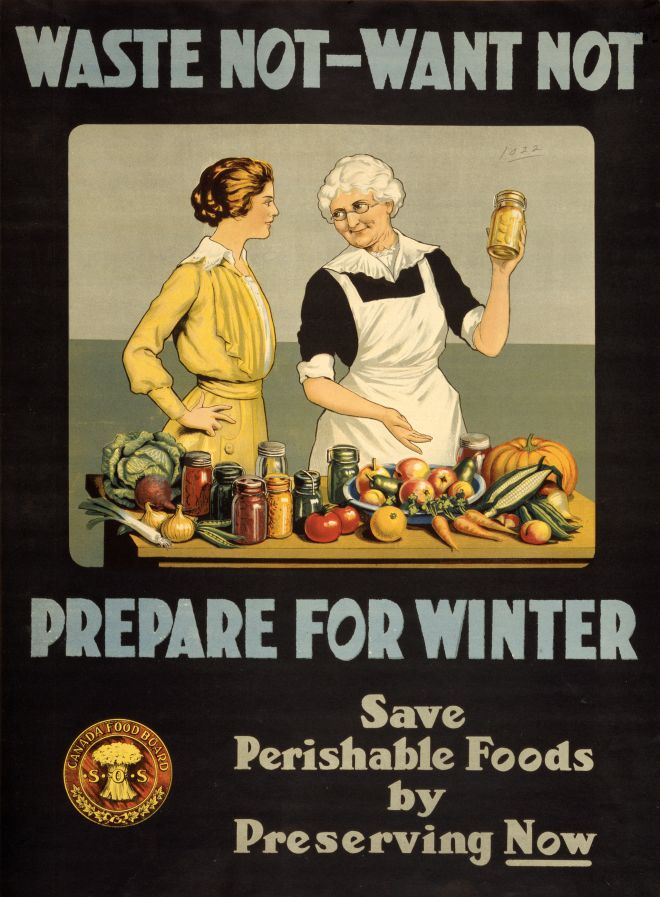by Helena Robling
In my first post on this blog I tried to depict the distinction between food waste and food loss and describe the importance of understanding this difference for any policy aiming to create sustainable food systems. Since then I have come across new aspects of the food waste problem, so let’s come back to it and take 3 minutes of FAO expertise to get us in the right mood:
Apart from one person, sadly enough an academic, who recently surprised me with the quite outrageous claim that average food waste is 0,5% (when it really is closer to 50%…) I have basically never come across anyone denying the existence of the huge amounts of unnecessary waste that the current food system creates, or the fact that dealing with this problem is very urgent. Irrespectively of ideology or nationality, there seems to be consensus on this. Even economists agree on the problem; if anything, to let so much of scarce resources go to produce 1.3 billion TONS of food that no one ever gets any utility from, is just the pure essence of inefficiency.
However, agreeing on the existence of a problem never automatically led to solutions, which has become painfully evident in this case. Despite the issue’s uncontroversial character and seemingly lack of political sensitiveness, food waste has long been a political non-issue. Everyone seems concerned but no one seems to take any action to deal with the problem.

It turns out that learning about and targeting food waste leads to a deeper understanding of what is really wrong with our food system, an insight which severely weakens assumptions about increased agricultural yields as the solution to future food security challenges. I will come back to this point in a later post about the “Human right to cheap food”.
Furthermore, efforts to deal with food waste also poses the risk of being hindered by the common economist mantra: “Consumers doesn’t want to pay, retailers only follow demand and governments shouldn’t use their power to impose subjective morals on its citizens.” This kind of reasoning is in my world more commonly known as: the best arguments for doing absolutely nothing.
But..
Either I have recently recovered from a long temporal blindness or something is right now really starting to happen in the food waste business.
Ok, so it turned out, someone actually did do something. 2014 was declared the first year against food waste by the European Parliament, even though I suspect that this declaration had more to do with the above mentioned political “safeness” of food waste and less with actual initiatives. In any case, something was done and it was during 2014 that things started to get real in around Europe.
One of the first ones out was cute and unprovocative initiative of the French supermarket Intermarche to start marketing Les Fruit et Legumes Moches – Inglorious fruit and vegetables, where not so perfectly looking fruit and vegetables were sold for a discounted price, to reduce waste (and, not to forget, to increase revenues of the supermarket).
Similar initiatives followed around Europe and expanded from supermarkets to cafés and restaurants specializing either in ugly fruits, like Culinary Misfits here in Germany or directly on food waste discarded by supermarkets, like Skipchen in the UK.
Typical of the Basques always doing their own thing, hearing about the “solidarity fridge” initiative of Basque town Galdakao, where the supermarket bin was replaced by a fridge from which anyone can take what they need, almost made me cry. [ed. Janina: this seems to have been inspired by Foodsharing.de which we have also written about.]
Even my own Stockholm is starting to get the point and will soon open the doors to Sweden’s first social supermarket, where food unable to be sold in regular supermarkets are heavily discounted for economically vulnerable consumers.

These are only some of many recent amazing initiatives, from retailers, NGO’s, social enthusiasts and normal people getting together to do some good and reduce some waste.
But it actually doesn’t stop at enthusiastic citizens. The first cutting-edge public initiative was, again, French and came just a about a month ago when the French parliament voted unanimously in favor of a law which will prohibit supermarkets to destroy edible food and instead make up contracts to donate it either to charity or to farmers as animal feed or farming compost. The main goal of the policy initiative is to reduce France’s food waste by 50% by the year 2025.
The law is neither flawless nor uncontroversial. Charities are worried about their ability to handle the administration of huge donations, while fines up to 75,000 € (or up to two years of prison!) for failing compliance could be devastating for small retailers. But it is the first ambitious attempt from any state in the world to legislate on reducing food waste and with the policy’s high ambition to cut food waste by half in only ten 10 years, it will be very interesting to follow its progress. Until I see it fail, I will believe it will work.
More debate?
Tristam Stuart is my house god on food waste, and for the ones who like to get nerdy, his book “Waste: Uncovering the global food scandal” is a must read. Others can just watch his superb TED Talk to get a comprehensive and true image of what is really going on.
Featured image by USDA, via Flickr CC.
Just popping up to let one know that the French MPs found some inspiration in Belgium, where similar measures are applied for a couple of years already, although at a local level only. So far.
http://www.consoglobe.com/gaspillage-alimentaire-belgique-cg
Cheers,
Serge
Hey Serge, great input! It would be very interesting to see if any impact evaluation has been done on those cases, I will try to look into it (sadly my french inexistent..) Thanks alot!